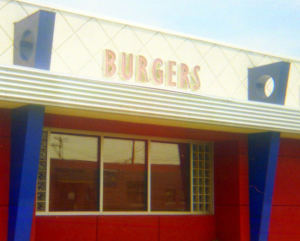In Betts .v McDonald’s Corp., a large restaurant chain was named as a defendant by 10 Hispanic and African American men who allege their termination by a franchisee of three Virginia-based restaurants amounts to racial discrimination.
It does seem the workers have a fair amount of proof necessary to win their case. Allegedly, supervisors of the franchise reportedly made statements flat-out saying the store was “too dark” and there were “too many black people” there on a day-to-day basis. In fact, the terminated workers were allegedly told directly they failed to fit the company’s desired profile.
These kinds of statements are going to be critical in determining whether racial discrimination was a factor in the workers’ firing. Most discrimination cases lack that kind of direct proof, so the case may be easier than others in that regard.
But whether these individuals can prove racial discrimination is actually just one element in the case. Another major sticking point they will have to overcome is proving whether the large corporation can be deemed a joint or integrated employer of those now-fired workers. That’s the only way these men will be able to hold the company liable for franchisee wrongdoing.
Our Orange County employment lawyers understand here again, there is evidence to suggest the workers may have a strong case.
In December, the National Labor Board’s general counsel, which acts as a prosecutor in labor law violation complaints, asserts the company has enough control over its franchisees that it can and should be held jointly responsible for working conditions of those employed within.
However, that announcement was sharply contested by a group representing franchisees. Additionally, one lawmakers has revealed he plans to introduce legislation that would halt further labor board action on this issue. Critics say raising liability of franchisers, like this one, may discourage some companies from expanding because it would raise legal costs.
Defendant in the Betts case insists franchisees set wage and hour rates as well as local working conditions.
But attorneys representing workers against this company in a variety of cases – from wage-and-hour disputes to union organizing to discrimination and retaliation – say there is no doubt regarding who is really in control. The corporation controls numerous operational elements and there is extremely rigid rules and regulations each franchise must follow.
The labor board has stated companies with indirect control over employees of another company can be liable for working conditions of those employees under federal labor laws. That includes all kinds of companies, from fast-food chains to temporary staffing firms.
Regardless of who is found liable, reducing discrimination across the board is a primary goal. Bloomberg Business recommends the following corporate actions to make this happen:
- Implement a strong anti-discrimination policy and make sure both employees and supervisors are trained regarding their rights and responsibilities.
- Establish procedures for workers to notify management of problems. Because supervisors may be part of the problem, offer alternatives in those situations.
- Make sure to take every complaint seriously and conduct a thorough investigation.
Contact the employment attorneys at Nassiri Law Group, practicing in Orange County, Riverside and Los Angeles. Call 949.375.4734.
Additional Resources:
McDonald’s Lawsuit Warning: Supervisors May Pose Employment Risks, Jan. 28, 2015, By Paul Gibson, Bloomberg BNA
More Blog Entries:
McDonald’s Faces Suit for “Rampant” Racial and Sexual Discrimination, Jan. 28, 2015, Orange County Discrimination Lawyer Blog
 Orange County Employment Lawyers Blog
Orange County Employment Lawyers Blog

